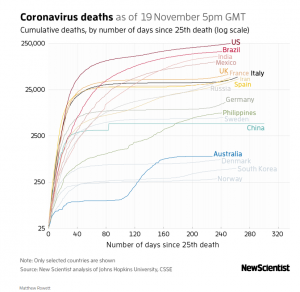“After a year disrupted by a global pandemic, the next normal is starting to take shape. Here’s a look at what’s ahead for IT organizations.
The predictions from the IDC FutureScape for Worldwide CIO Agenda are:
Prediction 1 – #CIOAIOPS: By 2022, 65% of CIOs will digitally empower and enable front-line workers with data, AI, and security to extend their productivity, adaptability, and decision-making in the face of rapid changes.
Prediction 2 – #Risks: Unable to find adaptive ways to counter escalating cyberattacks, unrest, trade wars, and sudden collapses, 30% of CIOs will fail in protecting trust —the foundation of customer confidence — by 2021.
Prediction 3 – #TechnicalDebt: Through 2023, coping with technical debt accumulated during the pandemic will shadow 70% of CIOs, causing financial stress, inertial drag on IT agility, and “forced march” migrations to the cloud.
Prediction 4 – #CIORole: By 2023, global crises will make 75% of CIOs integral to business decision making as digital infrastructure becomes the business OS while moving from business continuation to re-conceptualization.
Prediction 5 – #Automation: To support safe, distributed work environments, 50% of CIOs will accelerate robotization, automation, and augmentation by 2024, making change management a formidable imperative.
Prediction 6 – #RollingCrisis: By 2023, CIO-led adversity centers will become a permanent fixture in 65% of enterprises, focused on building resilience with digital infrastructure, and flexible funding for diverse scenarios.
Prediction 7 – #CX: By 2025, 80% of CIOs alongside LOBs will implement intelligent capabilities to sense, learn, and predict changing customer behaviors, enabling exclusive customer experiences for engagement and loyalty.
Prediction 8 – #Low/NoCode: By 2025, 60% of CIOs will implement governance for low/no-code tools to increase IT and business productivity, help LOB developers meet unpredictable needs, and foster innovation at the edge.
Prediction 9 – #ControlSystems: By 2025, 65% of CIOs will implement ecosystem, application, and infrastructure control systems founded on interoperability, flexibility, scalability, portability, and timeliness.
Prediction 10 – #Compliance: By 2024, 75% of CIOs will absorb new accountabilities for the management of operational health, welfare, and employee location data for underwriting, health, safety, and tax compliance purposes.
Pročitajte više

